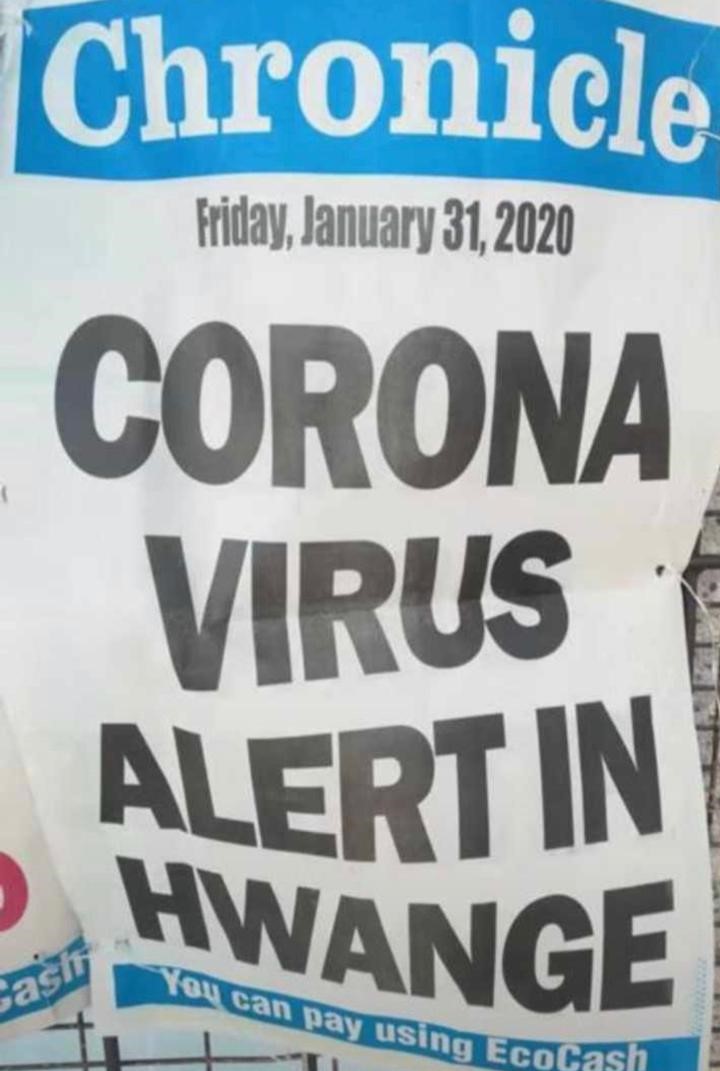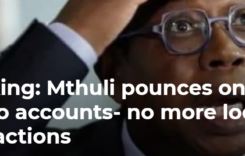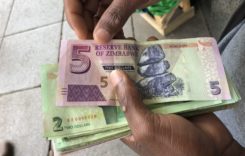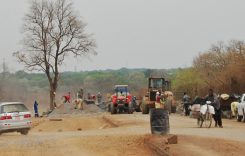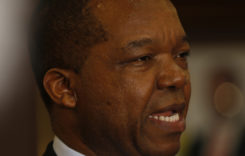On Friday, January 31, The Chronicle newspaper ran a banner with the headline: “Corona virus alert in Hwange”.
A picture of the image has gone viral on Zimbabwean social media, with some users interpreting it to mean that a case of the virus has been detected in Hwange.
This is not true. No case of the coronavirus has been detected in Zimbabwe.
The actual Chronicle story is merely coverage of a meeting by authorities in Hwange to raise awareness on the threat of the virus.
According to the article: “Hwange District is on high alert for Coronavirus with the Ministry of Health and Child Care carrying out sensitisation meetings while strengthening monitoring and surveillance mechanisms at ports of entry and medical facilities.”
In the article, the paper quotes District Medical Officer, Dr Fungayi Musinami, speaking at a meeting of the District Civil Protection Committee held to discuss preparedness.
“Today we are in Hwange meeting with CPC to do a sensitisation meeting regarding the coronavirus outbreak that originated in China but has spread to several countries globally. We have ports of entry in Victoria Falls, Kazungula, Vic Falls International airport and Pandamatenga so we need to be vigilant in terms of monitoring and surveillance while making sure we prevent the outbreak from coming into this country. So, today’s meeting was sensitisation of the CPC and discussing our preparedness strategies in response,” Musinami is quoted as saying.
Musinami, in the article, makes it clear that there have been no suspected cases of coronavirus in Hwange.
“So far we have not heard of any suspected cases of coronavirus but we are screening everybody that comes so that we can isolate those that are suspected to have the condition. That way we contain the virus,” she said.
Zimbabwe action on coronavirus
The coronavirus, whose epicentre is Wuhan in China, was on January 30 declared an international health emergency by the World Health Organisation. Around the world, countries have taken precautions, such as stepping up monitoring at ports of entry and restricting travel.
In Zimbabwe, the Ministry of Health and Child Care on January 24 held an Inter-Agency Coordination Committee for Health (IACCH) emergency preparedness and response (EPR) task force meeting, according to a situation report jointly released by the Ministry and the World Health Organisation on January 30.
As at January 28, 129 people traveling from China had been screened, the report said.
“As of 28th January 2020, 129 travellers arriving in Zimbabwe from countries with confirmed 2019-nCOV (coronavirus) transmission have been documented. None of these travellers had symptoms suggestive of 2019-nCOV infection on arrival. They are all being monitored daily by MOHCC health workers to determine the development of any suggestive symptoms,” it said.
The report also detailed the other steps taken so far:
• The National Microbiology Reference Laboratory provided with WHO issued interim guidance on laboratory testing for 2019-nCoV for the laboratories for laboratory diagnosis of patients who meet the definition of a suspect case of pneumonia associated with 2019-nCoV. Zimbabwe is expected to refer specimens from all suspect cases to regional reference laboratory (NICD) in South Africa
• Isolation hospitals have been designated at Wilkins Hospital and Thorngrove hospitals in Harare and Bulawayo respectively
• All provinces have designated Rapid Response Teams (RTTS). RRTs have been trained in IDSR and contact tracing, and the teams were to be trained on WHO recommendations on detecting and responding to 2019-nCoV
Chinese embassy action
In a statement on January 29, the Chinese embassy in Zimbabwe urged nationals that had travelled to Hubei, in Wuhan, to delay their return to Zimbabwe.
“Those who have returned to the most affected regions in China, such as Hubei, are advised to hold off coming back to Zimbabwe until the situation eases to reduce the risk of bringing the virus to Zimbabwe,” the statement said. A special health task force has been set up by the embassy to work with Zimbabwean health officials, the embassy added.
While there is trade and travel between China and Zimbabwe, there are no direct flights between the two countries, which minimises the risk.
‘Facts, not fear’
World Health Organisation (WHO) director general, Tedros Adhanom Ghebreyesus, this week cautioned against the spread of false information around the coronavirus.
“This is the time for facts, not fear. This is the time for science, not rumours,” he said in a statement.
Do you want to use our content? Click Here


